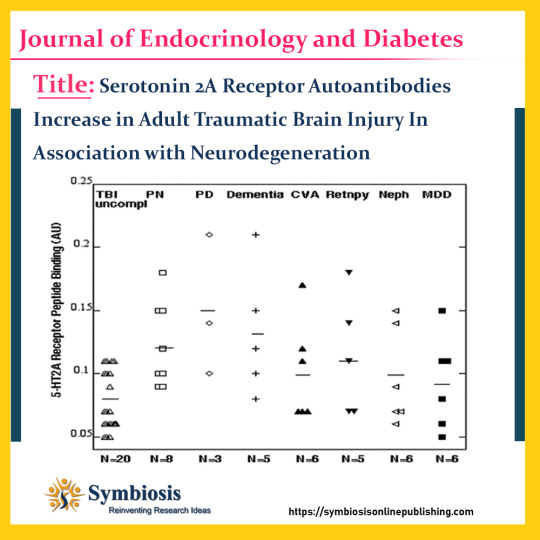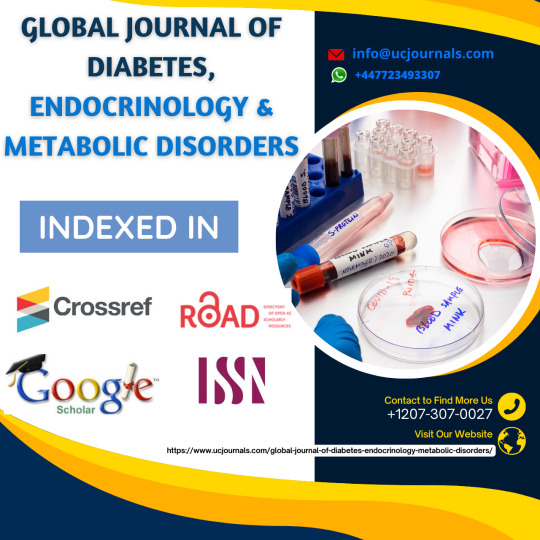#EndocrineSystem
Explore tagged Tumblr posts
Text

🧬 Adrenal Gland Cancer: What You Need to Know 🧠💊
Adrenal gland cancer is rare but serious. Knowing the symptoms, risk factors, and treatment options can save lives. At Smart Wellness AI, we’ve created a detailed guide to help you understand this complex condition.
✨ In this post, you’ll discover: ✔️ What causes adrenal cancer ✔️ Signs & symptoms to watch for ✔️ Modern treatment options — surgery, radiation, immunotherapy ✔️ Recovery and long-term health tips
Whether you're looking for support, education, or peace of mind, we’ve got your back.
🔗 Read the full article here: smartwellnessai.com/adrenal-gland-cancer-treatment
📚 Knowledge is power. Stay informed. Stay healthy. Follow us @SmartWellnessAI for more evidence-based health insights. 💚
#AdrenalGlandCancer#CancerAwareness#HealthEducation#WellnessBlog#SmartWellnessAI#TumblrHealth#EndocrineSystem#CancerSupport
0 notes
Text
💥 Shocking! 💉 A pathologist reveals the unthinkable: post-COVID injection, the pineal gland was completely destroyed in several autopsies. 😮🧠 This tiny gland regulates sleep, mood, and spiritual awareness—yet it’s being silently obliterated? 😔😞 What else haven’t we been told about the endocrine-disrupting effects of the jab? Hormonal chaos? Mood swings? Personality shifts? 🧬 Something’s not right… and it’s time to start asking serious questions. 🕵️♂️
👉 This isn't a theory—it’s a documented medical finding. Stay informed, protect your body, and don’t accept blind trust. ⚠️
#PinealGland#CovidVaccine#PersonalityChange#EndocrineSystem#HealthFreedom#VaccineTruth#HormoneDisruption#WakeUp#InformedConsent#MedicalAlert
0 notes
Text
#ThyroidHealth#ThyroidDisorders#HormoneHealth#Hypothyroidism#Hyperthyroidism#EndocrineSystem#HealthAwareness#ThyroidSymptoms#ThyroidTreatment#WellnessTips
0 notes
Text

🌀 Tuesday Tip! The thyroid gland plays a crucial role in regulating your metabolism! It produces hormones that influence how fast or slow your brain, heart, muscles, liver, and other parts of your body function. Keep your thyroid health in check with regular testing. Book your thyroid tests with us today!
#MarvelPathLab#ThyroidHealth#Metabolism#ThyroidFacts#HealthAwareness#EndocrineSystem#HormoneBalance#ThyroidTesting#StayHealthy#PreventiveCare#HealthCheck#ThyroidGland#MedicalFacts#WellnessJourney#LabServices#marvellab
0 notes
Text
Understanding the Connection Between Hypothyroidism and Insulin Resistance
Despite at first seeming unrelated, insulin resistance and hypothyroidism can have a significant impact on each other as medical conditions. I will talk about what hypothyroidism and insulin resistance are, how they present physically, and most importantly how these two intriguing conditions are related.

An underactive thyroid gland, which is responsible for producing hormones that regulate metabolism, is a hallmark of the condition known as hypothyroidism. Some indications of insufficient thyroid hormone production by the thyroid gland include fatigue, weight gain, and a slow metabolism. Blood sugar regulation is dependent on the hormone insulin, which is released by the pancreas. Insulin resistance occurs when cells in the body become less sensitive to the effects of insulin, making it more difficult for the body to absorb glucose from the blood.
#Hypothyroidism#InsulinResistance#ThyroidHealth#MetabolicHealth#EndocrineSystem#HormoneBalance#ChronicConditions#HealthAwareness#ThyroidDisease#BloodSugarControl#DiabetesAwareness#HealthEducation#WellnessJourney#HormonalHealth#AutoimmuneDisease#MedicalInsights#PatientCare#HealthyLiving#FunctionalMedicine
0 notes
Text

#traumaticbraininjury (TBI) is associated with an increased risk of late #neurodegenerative complications via unknown mechanisms. Circulating neurotoxic 5-hydroxytryptamine 2A receptor (5-HT2AR) autoantibodies were reported to increase in subsets of obese #type2 diabetes having microvascular complications. We tested whether 5-HT2AR autoantibodies increase in adults following #traumaticbraininjury in association with neurodegenerative complications.
View more visit @ https://symbiosisonlinepublishing.com/endocrinology-diabetes/endocrinology-diabetes142.php
#symbiosisonlinepublishing#endocrinologia#endocrinology#endocrinologist#diabetes#diabetesawareness#diabetes2#diabetescare#TBIRecovery#tbiawareness#tbisurvivor#endocrinesystem#endocrine#plasma#antibody#hydroxytryptamine#journals#journal#pubmed#peerreview#openaccess#openaccessjournal
0 notes
Text
youtube
3 Hidden Secrets of the ENDOCRINE System You Need to Know
The Endocrine System Explained | Functions, Hormones & Glands | Human Anatomy The endocrine system is one of the most vital systems in the human body, responsible for regulating essential functions like metabolism, growth, mood, and reproduction. In this video, we break down the glands and hormones of the endocrine system, explaining how they work together to maintain homeostasis. You'll learn about key endocrine glands, including the pituitary gland, thyroid, adrenal glands, pancreas, and more.
We also cover how hormones like insulin, cortisol, adrenaline, and growth hormones influence bodily functions.
📌 Topics Covered:
✔️ What is the endocrine system?
✔️ Functions of endocrine glands
✔️ How hormones regulate the body
✔️ Disorders like diabetes, hypothyroidism, hyperthyroidism, adrenal fatigue
✔️ How to keep your endocrine system healthy This is a must-watch for medical students, biology enthusiasts, and anyone interested in human anatomy!
💡 If you found this video helpful, don't forget to LIKE, SHARE, and SUBSCRIBE for more educational content on human physiology, anatomy, and health! 🔔 Turn on notifications so you never miss an update!
#EndocrineSystem #HumanAnatomy #Hormones #Glands #PituitaryGland #Thyroid #Diabetes #Metabolism #Physiology #MedicalScience #HealthTips #HormonalBalance #EndocrineDisorders
1 note
·
View note
Text

Indly submit your research work for publishing at the Global Journal of Diabetes, Endocrinology & Metabolic Disorders. Submit your paper visit now: https://www.ucjournals.com/global-journal-of-diabetes-endocrinology-metabolic-disorders/ WhatsApp Us: +447723493307 #MetabolicHealth #MetabolicSyndrome #InbornErrorsOfMetabolism #MetabolicDiseases #Diabetes #Type1Diabetes #Type2Diabetes #DiabetesAwareness #EndocrineSystem #EndocrineHealth #EndocrineDisorders
0 notes
Text
The production of testosterone and sperm relies heavily on the coordinated actions of luteinizing hormone (LH) and follicle-stimulating hormone (FSH), two essential hormones the pituitary gland produces.
LH and FSH play distinct but complementary roles in the male reproductive system. LH primarily stimulates the Leydig cells in the testes to produce testosterone. Testosterone is crucial for the development and maintenance of male reproductive tissues, as well as the expression of secondary sexual characteristics. Without adequate levels of testosterone, various aspects of male physiology, including muscle mass, bone density, and libido, can be compromised.
On the other hand, FSH is responsible for stimulating the Sertoli cells in the testes, which support and nourish developing sperm cells through the process of spermatogenesis. Spermatogenesis is the complex process of sperm cell formation, involving multiple stages of cell division and maturation. FSH helps regulate this process, ensuring the continuous production of viable sperm cells.
The interplay between LH and FSH is tightly regulated by feedback mechanisms within the endocrine system. Testosterone exerts a negative feedback effect on the hypothalamus and pituitary gland, inhibiting the release of GnRH (gonadotropin-releasing hormone), LH, and FSH when testosterone levels are sufficient. Conversely, low testosterone levels signal the hypothalamus to release GnRH, which stimulates the pituitary gland to produce LH and FSH, thereby maintaining hormonal balance.
Overall, LH and FSH play indispensable roles in orchestrating the intricate processes of testosterone and sperm production in the male reproductive system. Their coordinated actions ensure proper functioning and fertility, highlighting their significance in male reproductive health.
**NOTE** The content on this page is subject to interpretation and is the opinion of the content writer. We do not claim it to be fact. We encourage you to consult a medical doctor before taking any prescribed medications or supplements.
Conclusion:
Supporting Hormones health is essential for overall well-being and vitality. By incorporating regular exercise, proper nutrition, adequate sleep, stress management techniques, and IV therapy, you can help maintain optimal testosterone levels and lead a healthy, balanced life. Always consult a healthcare professional before making significant changes to your lifestyle or starting any new treatments to ensure they suit your needs.
At AAI Rejuvenation Clinic, we advise anyone to think seriously about beginning Hormone treatment if there is no medical need. However, we will take every precaution to ensure that you read your program’s positive benefits by providing the latest at-home hormonal mouth-swab testing to ensure we are continually monitoring your progress and aware of any adverse side effects. Fill out the Medical History Form, or if you need more information, call us at (866) 224-5698 or (866) AAI-Low-T.
Website:
https://www.aaiclinics.com/
Social Media Information:
https://www.pinterest.com/antiagingr/
https://twitter.com/AARejuvenation
https://www.facebook.com/aarejuvenationclinics/
More Information on The Key Role of LH and FSH in Testosterone and Sperm Production
hhttps://www.aaiclinics.com/aai-blog/
#LH
#FSH
#Testosteroneproduction
#Spermproduction
#Pituitarygland
#Leydigcells
#Sertolicells
#Malereproductivesystem
#Endocrinesystem
#Feedbackmechanisms
#GnRH
#Hormonalbalance
#Reproductivetissues
#Secondarysexualcharacteristics
#Spermatogenesis
#Testicularfunction
#Hypothalamus
#Hormoneregulation
#Reproductivehealth
#Fertility
1 note
·
View note
Text
Acromegaly

Overview
Acromegaly is a rare hormonal disorder that results from excessive production of growth hormone (GH) by the pituitary gland. This condition usually develops slowly over several years and is often not diagnosed until later stages. In most cases, acromegaly is caused by a benign tumor in the pituitary gland, called pituitary adenoma, that produces too much GH. Rarely, acromegaly can also be caused by tumors in other parts of the body that produce GH-releasing hormone (GHRH) or by non-tumor-related causes. The excess GH in acromegaly leads to an overgrowth of bones and tissues in the body, especially in the hands, feet, face, and internal organs. This results in a range of symptoms that can include: - Enlarged hands and feet - Coarse facial features - Increased sweating - Fatigue - Headaches - Joint pain - Carpal tunnel syndrome - Sleep apnea - Vision problems - Hypertension - Diabetes mellitus Acromegaly can also increase the risk of certain health problems, such as heart disease, stroke, and colon polyps. Treatment options for acromegaly include surgery to remove the pituitary tumor, medications to reduce GH production or block its effects, and radiation therapy. Treatment can improve symptoms, prevent complications, and reduce the risk of long-term health problems. Regular monitoring and follow-up care are important for managing this condition.
Symptoms
The symptoms of acromegaly can vary widely from person to person and can develop slowly over several years. Some of the common signs and symptoms of acromegaly include: - Enlarged hands and feet: The bones in the hands and feet grow larger, and the fingers and toes become thicker and wider. - Coarse facial features: The bones in the face, especially the jaw and forehead, become more prominent, and the nose and lips may also increase in size. - Increased sweating: People with acromegaly often experience excessive sweating, particularly at night. - Fatigue: People with acromegaly may feel tired or lack energy, even after a good night's sleep. - Headaches: Chronic headaches are a common symptom of acromegaly, and they can be severe. - Joint pain: The growth of bones and tissues can cause joint pain and stiffness, particularly in the hips, knees, and shoulders. - Carpal tunnel syndrome: The growth of tissues in the wrist can compress the median nerve, causing carpal tunnel syndrome. - Sleep apnea: Enlargement of the soft tissues in the throat can cause sleep apnea, a condition in which breathing stops briefly during sleep. - Vision problems: The enlarged pituitary gland can press against the optic nerves, causing vision problems or even vision loss. - Hypertension: Excessive growth hormone can cause high blood pressure. - Diabetes mellitus: The excess growth hormone can also cause insulin resistance, leading to high blood sugar levels and an increased risk of diabetes mellitus. It's important to note that not all people with acromegaly experience all of these symptoms. Some people may have mild or no symptoms, while others may experience more severe symptoms. If you're experiencing any of these symptoms, it's important to see a doctor for an evaluation.
When to see a doctor
If you have any symptoms of acromegaly, it's important to see a doctor for an evaluation. Some of the common symptoms include enlarged hands and feet, coarse facial features, excessive sweating, fatigue, chronic headaches, joint pain, carpal tunnel syndrome, sleep apnea, vision problems, hypertension, and diabetes mellitus. In addition, if you have a family history of acromegaly or have a condition that increases your risk of developing this disorder, such as multiple endocrine neoplasia type 1 (MEN1) or Carney complex, you should talk to your doctor about screening for acromegaly. Early diagnosis and treatment of acromegaly can prevent or minimize the development of complications associated with this disorder, such as heart disease, stroke, and colon polyps. If you suspect that you or a loved one may have acromegaly, it's important to see a doctor as soon as possible. Your doctor can order blood tests to check for elevated levels of growth hormone and insulin-like growth factor-1 (IGF-1), which are markers of acromegaly. Imaging tests, such as magnetic resonance imaging (MRI), may also be ordered to visualize any pituitary tumors. Treatment options for acromegaly are available and can help manage the symptoms and reduce the risk of complications.
Causes
Acromegaly is caused by the overproduction of growth hormone (GH) by the pituitary gland, which is a small gland located at the base of the brain. The excess GH is usually caused by a benign tumor, called a pituitary adenoma, that grows on the pituitary gland and produces too much GH. In rare cases, acromegaly can also be caused by tumors in other parts of the body that produce GH-releasing hormone (GHRH), which stimulates the pituitary gland to produce GH. These tumors are usually found in the pancreas, lungs, or adrenal glands. Other less common causes of acromegaly include: - Familial acromegaly: In rare cases, acromegaly can be inherited in an autosomal dominant pattern, which means that a person only needs to inherit one copy of the abnormal gene from one parent to develop the disorder. - Non-tumor-related causes: In very rare cases, acromegaly can be caused by certain medical conditions, such as McCune-Albright syndrome, which is a rare genetic disorder that causes abnormal bone growth and hormonal imbalances. Acromegaly usually develops slowly over several years, and the symptoms may not be noticeable for a long time. Early diagnosis and treatment are important to prevent complications associated with this disorder. If you suspect that you may have acromegaly or have a family history of the disorder, it's important to talk to your doctor about screening and testing for this condition.
Risk factors
There are several risk factors associated with the development of acromegaly, including: - Age: Acromegaly can occur at any age, but it is more common in middle-aged adults. - Gender: Acromegaly affects both men and women equally. - Family history: People with a family history of acromegaly or multiple endocrine neoplasia type 1 (MEN1) or Carney complex have an increased risk of developing the disorder. - Medical history: People who have had radiation therapy to the head or neck or have a history of pituitary tumors are at an increased risk of developing acromegaly. - Genetics: Some genetic mutations have been associated with an increased risk of developing pituitary tumors, which can lead to acromegaly. - Insulin resistance: People with insulin resistance, which can occur in conditions such as obesity or type 2 diabetes, may be at an increased risk of developing acromegaly. It's important to note that having one or more of these risk factors does not necessarily mean that you will develop acromegaly. However, if you have one or more of these risk factors, it's important to be aware of the signs and symptoms of acromegaly and to talk to your doctor about screening and testing for the disorder. Early diagnosis and treatment are important to prevent complications associated with this disorder.
Complications
Acromegaly can lead to a number of complications if left untreated or poorly managed, including: - Cardiovascular disease: Excess growth hormone can cause the heart to work harder, leading to an increased risk of hypertension, heart disease, and stroke. - Diabetes: Acromegaly can lead to insulin resistance, which can increase the risk of developing type 2 diabetes. - Sleep apnea: Enlarged soft tissues in the mouth and throat can obstruct breathing during sleep, leading to sleep apnea and poor quality sleep. - Joint problems: Excess growth hormone can cause bones and cartilage to grow abnormally, leading to joint pain and arthritis. - Carpal tunnel syndrome: Enlarged bones and tissues in the hands can compress the median nerve, causing numbness, tingling, and weakness in the hands and wrists. - Vision problems: Enlarged pituitary tumors can compress the optic nerve, leading to vision problems and even blindness. - Colorectal polyps and cancer: People with acromegaly are at an increased risk of developing polyps in the colon, which can lead to colorectal cancer if left untreated. - Increased risk of infections: People with acromegaly are at an increased risk of developing infections due to the effects of excess growth hormone on the immune system. - Psychosocial problems: People with acromegaly may experience depression, anxiety, and social isolation due to the physical and emotional effects of the disorder. It's important for people with acromegaly to receive early and appropriate treatment to prevent or manage these complications. Treatment options for acromegaly may include surgery, radiation therapy, and medication, depending on the underlying cause and severity of the disorder. Read the full article
#Acromegaly#benigntumor#care#Causes#development#diagnosis#endocrinesystem#enlargedhandsandfeet#excesshormone#excessivesweating#features#full#GH#gigantism#growth#growthhormone#health#hormonaldisorder#long-term#men#mouth#pituitarygland#produce#risk#signs#sleep#symptoms#Treatment#women
3 notes
·
View notes
Photo

. . . #endocrinesystem #endocrinologist #nurses #doctor https://www.instagram.com/p/CBpsBzTBW7g/?igshid=bgiojse19nfw
1 note
·
View note
Photo

· P H Y S I C A L E D U C A T I O N · · · · Mais que jogar bola, é um mundo de conhecimentos... #physicaleducation #exercisephysiologyfair #physiology #endocrinesystem #thyroid #saúdeevida #sistemaendocrino #educacaofisica #fisiologiadoexercicio #boraquecansa #2018.1 (em Sousa Praça Da Matriz) https://www.instagram.com/p/B8Rd-awFIB1/?igshid=12ghr7qc9yaij
#physicaleducation#exercisephysiologyfair#physiology#endocrinesystem#thyroid#saúdeevida#sistemaendocrino#educacaofisica#fisiologiadoexercicio#boraquecansa#2018
1 note
·
View note
Text
Enrich Your Knowledge On Nutritional Endocrinology
Nutritional endocrinology is a thorough approach to human nutrition that investigates how the endocrine system is impacted by environmental factors, lifestyle decisions, and food. Essentially, it makes sense of the complex interplay between nutrition and hormone balance, emphasizing the role that food plays in regulating our metabolic processes. When one or more hormones are present in the bloodstream in excess or insufficient amounts, an imbalance occurs. Numerous biological functions, including growth and development, metabolism, mood modulation, stress response, and mood regulation, are significantly influenced by these hormones. A change in hormone levels may result in a variety of symptoms and health issues.

Hormone imbalances can also result from unhealthy lifestyle choices, such as skipping sleep, eating poorly, and not exercising. Complex medical illnesses like menopause, diabetes, PCOS, thyroid disorders, and menopause can have a significant impact on hormonelevels. Exposure to environmental elements like as pollutants, toxins, and endocrine disrupting substances can further alter hormone balance and production.
#healthyliving#metabolichealth#lifestylechanges#NutritionalEndocrinology#HealthKnowledge#EndocrineSystem#NutritionalScience#HormoneHealth#NutritionEducation#WellnessTips#HealthyLiving#DietAndHormones#FunctionalNutrition#HolisticHealth#NutritionalTherapy#HealthAndNutrition#BalancedDiet#WellnessJourney#HealthAwareness
0 notes
Photo

Eli Lilly's insulin copay cap doesn't replace the need for government regulation A few months after congress failed to pass an insulin copay cap of $35 for all insured patients, and a few weeks after President Joe Biden once again raised the issue in his State of the Union address, the US’s largest insulin maker Ely Lilly announced Wednesday a series of price cuts for insulin and the copay.Read more... https://qz.com/eli-lillys-insulin-copay-cap-doesnt-replace-the-need-fo-1850173742
#elililly#insulin#elilillyandcompany#davidricks#copayment#elylilly#insulinanalog#rezvoglar#pharmaceuticalindustry#recombinantproteins#medicine#branchesofbiology#rtt#sanofi#health2cmedical2cpharma#endocrinesystem#joebiden#novonordisk#diabetes#peptidehormones#Annalisa Merelli#Quartz
0 notes
Text

kindly submit your research work for publishing at the Global Journal of Diabetes, Endocrinology & Metabolic Disorders.
Submit your paper visit now: https://www.ucjournals.com/global-journal-of-diabetes-endocrinology-metabolic-disorders/ WhatsApp Us: +447723493307
#MetabolicHealth #MetabolicSyndrome #InbornErrorsOfMetabolism #MetabolicDiseases #Diabetes #Type1Diabetes #Type2Diabetes #DiabetesAwareness #EndocrineSystem #EndocrineHealth #EndocrineDisorders
0 notes
Photo

YOGA TEACHER TRAINING COURSE Category: Anatomy and Physiology Chapters: Endocrine System, Nervous System Topic: Difference between Hormones and Neurotransmitters Relevance: Competent Yoga Teacher Hey, competent yoga teachers read this infographic, and learn the difference between Hormones and Neurotransmitters.😊 Please note, our Hormones affect our thinking and behaviours. Yoga's components: Asanas, Pranayamas, Mudras, Mantras, Meditation, Bandhas, Kriyas, Relaxation, etc, enable us to have ideal thinking pattern and ideal behaviours, to make our lives ideal. Thank you. Namaste 🙏 Yogo Anand Founder: Adwait Yoga School #anatomy #physiology #yogateacher #yogateachertraining #yogattctopic #hormones #neurotransmitters #endocrinesystem #nervoussystem #yogianand #adwaityogaschool (at Adwait Yoga School) https://www.instagram.com/p/CV9M0ODhkKU/?utm_medium=tumblr
#anatomy#physiology#yogateacher#yogateachertraining#yogattctopic#hormones#neurotransmitters#endocrinesystem#nervoussystem#yogianand#adwaityogaschool
0 notes